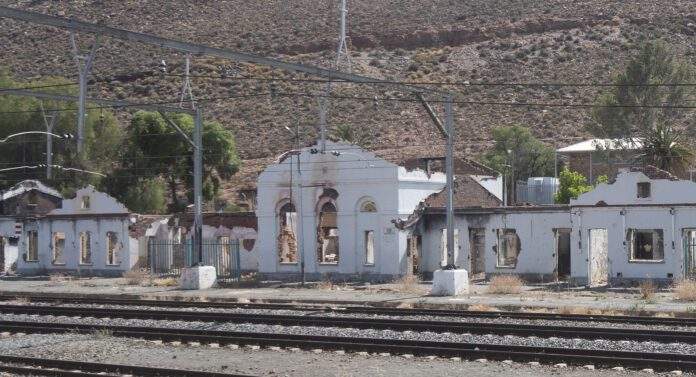Is it not strange why some people remember apartheid, yet we all know, or ought to know, it was an abomination, and should not ever be glorified, even in the face of governance failings.
For nothing can expunge the memories of injustice, discrimination, suffering, pass laws, Bantu education and land dispossession brought about by the inhuman apartheid system.
How can we forget the Sharpeville massacre? How can we forget the Soweto 1976 students’ uprisings when protesting students were mowed down by apartheid bullets? How can we forget the apartheid torture of our comrades in various parts of the country, including the Vlakplaas apartheid death squads led by Eugene de Kock? How can we forget Steve Bantu Biko, his assassination at the hands of the apartheid police, and how he was dehumanised and tortured?
These acts of wanton evil can never and should never be forgotten.
Yet the latter-day administrators of the railway system post-apartheid years have collapsed the system, corrupted it and allowed greed to desecrate a rail system that worked for the good of the people, particularly the working class.
Now this transport system lies in ruin. The railway stations from Springs to Randfontein reflect nothing but a monumental failure, and have left most South Africans wondering, and asking: what went wrong?
The abiding question is, what has caused the dysfunction of the railway system? Why have the rail commuters been deprived of the right to use an efficient and cost-effective mode of transport to work and leisure?
It makes no sense that after defeating apartheid, marked by the inauguration of a new democratic South Africa on April 27, 1994, and the presidency of Nelson Mandela, and 29 years later, with a new constitution and its Bill of Rights, the people of this country are unable to enjoy the dividends of their labour.
Why did the solid infrastructure, almost impenetrable as it seemed to us, crumbled, and was badly managed by those entrusted to run it efficiently?
Why did the officials entrusted with the running of the commuter rail infrastructure allow it to implode, when Mandela’s mission and vision was to showcase to the world the ability of the previously oppressed South Africans to run complex operations?
Why did we let Madiba down by running to the ground the rail system that was meant to be a black person’s pride?
At the beginning, the stated purpose of the Passenger Rail Agency of South Africa (Prasa) was to replace the apartheid nightmare with a first-rate rail passenger service. State-owned Prasa would have the Metrorail as a wing to operate a commuter rail service that would satisfy the needs of the working class in all major urban areas, and would consists of nearly 500 stations countrywide, 2 228km of rail track. The carrying passenger capacity would be 1.7-million passengers every weekday.
Its sister company would be Transnet, designed for long-distance haulage for goods transported to and from the country’s ports to create wealth for the citizens of country – millions of whom are black people and black business.
But today, both Prasa and Transnet find themselves in a state of disrepair and paralysis – unable to optimally serve communities and businesses, thus failing to carry out their constitutional mandate to serve the people of this land.
What are we going to do to restore confidence in Prasa and Transnet, and other failing parastatals?
We are a constitutional democracy, and our constitution is about transformation – it is meant to serve all people of this country, particularly those who were
disadvantaged by apartheid.
A constitution is a blueprint to ensure the effective functioning of all state entities – reflective of the hopes and dreams of the nation.
A state that misfires become antithetical to the wishes of the nation and undermines the will of the people who hanker for a better life.
After several years of challenges, South Africans could be feeling a little better, believing there could be a glimmer of hope, and that Eskom could be turning the corner. The new board and management and the government, including an intervention by the private business, may help to bring about the much-needed
relief to end loadshedding.
When South Africans work together, with the government taking the lead progress will happen, and our country will be in a better place.
These are the urgent interventions we require at Prasa and Transnet and other state-owned enterprises. The president must lead the charge, and his people will follow him towards making our country a better country for all.
Follow @SundayWorldZA on Twitter and @sundayworldza on Instagram, or like our Facebook Page, Sunday World, by clicking here for the latest breaking news in South Africa.



